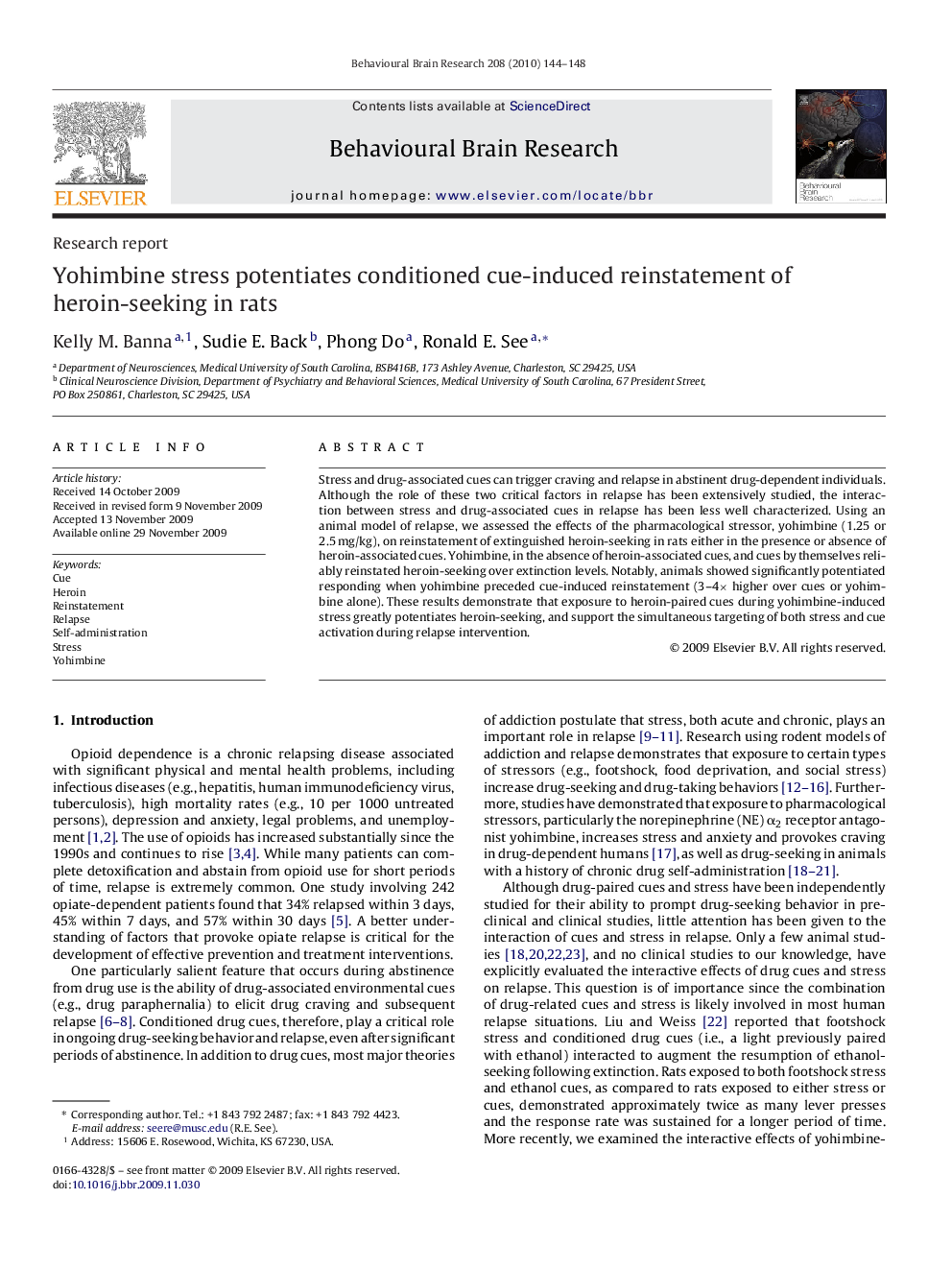| Article ID | Journal | Published Year | Pages | File Type |
|---|---|---|---|---|
| 4314289 | Behavioural Brain Research | 2010 | 5 Pages |
Stress and drug-associated cues can trigger craving and relapse in abstinent drug-dependent individuals. Although the role of these two critical factors in relapse has been extensively studied, the interaction between stress and drug-associated cues in relapse has been less well characterized. Using an animal model of relapse, we assessed the effects of the pharmacological stressor, yohimbine (1.25 or 2.5 mg/kg), on reinstatement of extinguished heroin-seeking in rats either in the presence or absence of heroin-associated cues. Yohimbine, in the absence of heroin-associated cues, and cues by themselves reliably reinstated heroin-seeking over extinction levels. Notably, animals showed significantly potentiated responding when yohimbine preceded cue-induced reinstatement (3–4× higher over cues or yohimbine alone). These results demonstrate that exposure to heroin-paired cues during yohimbine-induced stress greatly potentiates heroin-seeking, and support the simultaneous targeting of both stress and cue activation during relapse intervention.
